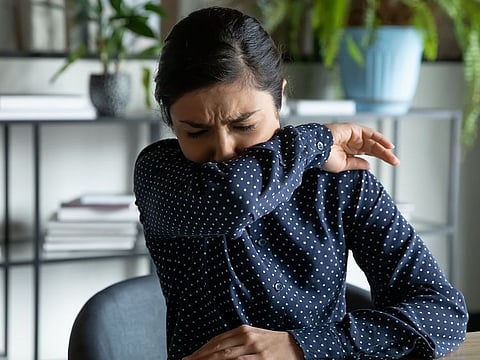What is Human Metapneumovirus (HMPV)? Should we be worried?
While the illness is typically mild, it can lead to severe complications like pneumonia

Dubai: HMPV is a respiratory virus that causes symptoms similar to the common cold and flu. While the illness is typically mild, it can lead to severe complications like pneumonia, especially in infants, the elderly, and individuals with weakened immune systems.
Why is HMPV in the news right now?
A surge in respiratory infections, including HMPV, has been reported in China, particularly among children under 14. This has raised concerns, though health officials emphasize that it aligns with seasonal flu trends.
Is there a need to panic?
No, health officials, including India’s Directorate General of Health Services, have assured the public that HMPV is not unusual or cause for alarm. It behaves like other respiratory viruses and can be managed with standard precautions and symptomatic care.
How does HMPV spread?
HMPV spreads through respiratory droplets when an infected person coughs or sneezes. It can also spread by touching contaminated surfaces and then touching the face.
What precautions should people take?
General precautions include:
Avoiding close contact with people who have respiratory symptoms.
Using tissues or handkerchiefs when coughing or sneezing.
Wearing masks, especially for the elderly, pregnant women, and those with compromised immunity.
Keeping children home when sick to prevent the spread of infection.
What has China said about the situation?
Chinese officials have stated that the increase in respiratory infections, including HMPV, is typical during the winter. They have reassured the public and tourists that it is safe to travel in China and that the government is monitoring the situation closely.
China’s foreign ministry spokesperson, Mao Ning, stated on Friday that “Respiratory infections tend to peak during the winter season.”
Reassuring citizens and tourists, she added, “I can assure you that the Chinese government cares about the health of Chinese citizens and foreigners coming to China. It is safe to travel in China.”
What are the symptoms?
Symptoms include:
Cough, fever, nasal congestion, wheezing and difficulty breathing (in severe cases)
Is there a treatment or vaccine for HMPV?
There is no specific antiviral treatment or vaccine for HMPV. Management involves treating symptoms, such as using fever reducers, providing oxygen, and ensuring adequate hydration. Severe cases may require hospitalisation.
Could HMPV spread to other countries?
Countries like Cambodia and Taiwan are monitoring the situation. India’s health officials have confirmed there is no unusual rise in cases and are keeping a close watch.
When was it first detected?
First identified in the Netherlands in 2001, HMPV is a significant cause of respiratory illness in children and the elderly.
It has a low mortality rate but can be severe for individuals with comorbidities.
The virus spreads via respiratory droplets and contaminated surfaces.
Outbreaks occur most frequently during winter and early spring, aligning with seasonal flu patterns.



